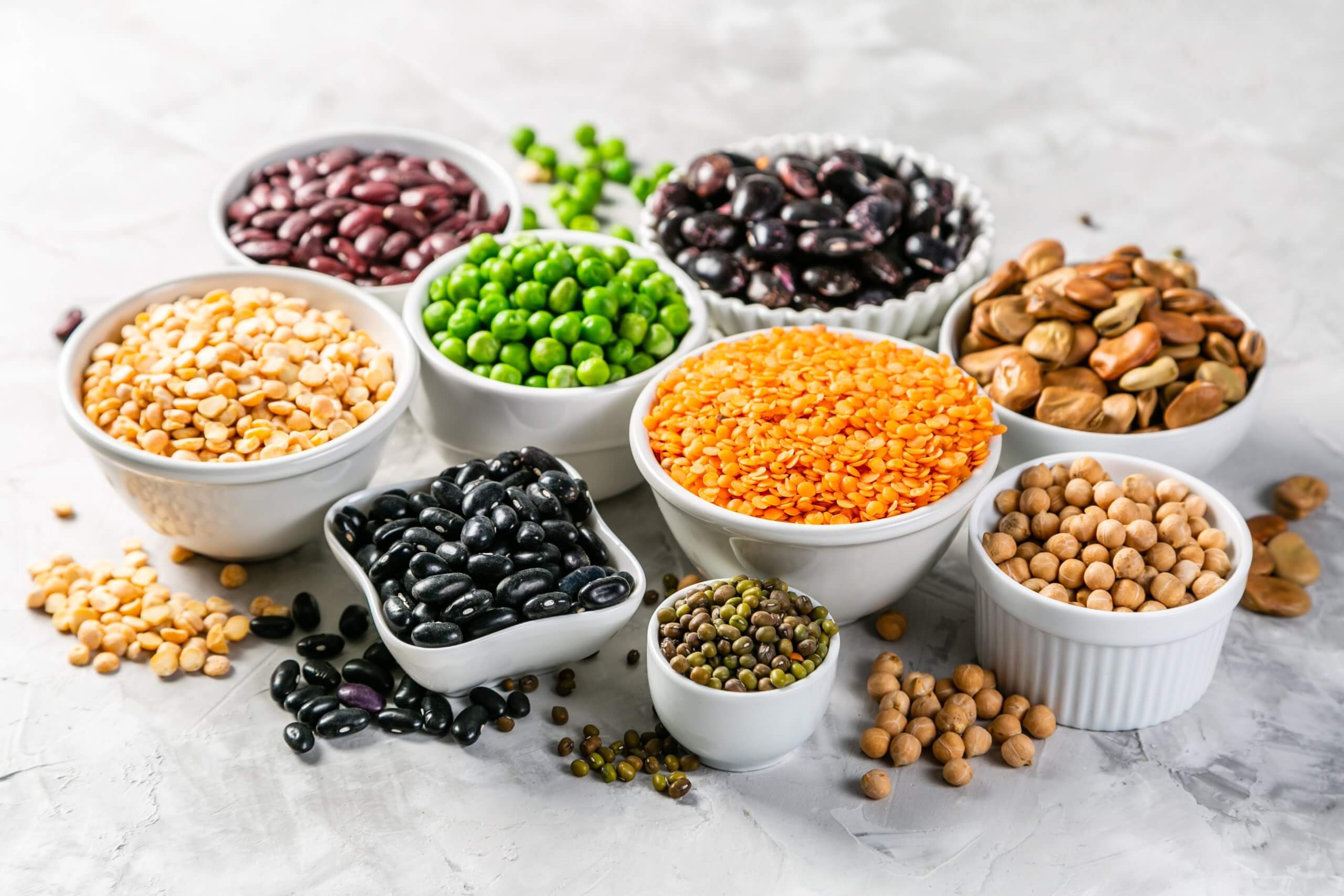Introduction to the Rise of Plant-Based Eating
The culinary landscape is evolving. As we step into the future, more people are opting for plant-based meals, and this shift is about more than just a fleeting trend. With each passing year, the movement towards meatless eating grows stronger. Whether it’s due to environmental concerns or health consciousness, individuals are rethinking their plates. By 2025, embracing a plant-based lifestyle could become the norm rather than the exception.
Imagine walking through your local grocery store and seeing aisles dedicated to vibrant vegetables, innovative meat alternatives, and wholesome grains that make you excited to cook. This isn’t just wishful thinking; it’s on the horizon as society becomes increasingly aware of what our food choices mean for both us and our planet.
As we dive deeper into this topic, we’ll explore why going meatless is not only beneficial but essential in today’s world. Join us on this journey where flavor meets sustainability!
Environmental Impact of Meat Production
Meat production is a significant contributor to environmental degradation. Livestock farming requires vast amounts of land and water, leading to deforestation and habitat loss.
The greenhouse gases emitted during meat production are alarming. Cattle alone produce methane, a potent gas that traps heat in the atmosphere far more effectively than carbon dioxide.
Soil erosion is another consequence tied to intensive animal farming practices. When pastures are overgrazed, soil quality deteriorates, affecting not only crop yield but also local ecosystems.
Water pollution from runoff can contaminate rivers and lakes with harmful substances. This can disrupt aquatic life and impact communities relying on these water sources for daily needs.
As awareness grows about these impacts, many people are seeking alternatives that lessen their ecological footprint. Plant-based diets present an attractive solution, allowing individuals to enjoy meals while caring for the planet’s health.
Health Benefits of a Plant-Based Diet
A plant-based diet is a powerhouse of nutrients. Rich in fruits, vegetables, whole grains, nuts, and seeds, it provides essential vitamins and minerals your body craves.
Research shows that adopting more meatless meals can lead to improved heart health. Lower cholesterol levels and reduced blood pressure are just a couple of the benefits many experience.
Weight management becomes easier too. Plant foods tend to be lower in calories yet high in fiber. This combination keeps you feeling full longer without piling on excess pounds.
Moreover, studies suggest that a plant-centric approach may lower the risk of chronic diseases like diabetes and certain cancers. The antioxidants found in colorful produce play a crucial role in combating inflammation.
As awareness grows around these health advantages, more individuals are embracing meat-free options for both wellness and vitality. The shift towards plants isn’t merely about trends; it’s about nurturing your body effectively.
Accessibility and Affordability of Plant-Based Foods
Access to plant-based foods is becoming easier than ever. Grocery stores now stock a wider variety of options, from beans and lentils to innovative meat alternatives.
Local farmers markets also play a key role in bridging the gap. They provide fresh produce at competitive prices, often directly sourced from nearby farms.
Affordability has improved too. With increasing demand for plant-based products, brands are responding with budget-friendly items that don’t compromise on quality or taste.
Meal prep can further enhance affordability. By planning meals around staple ingredients like whole grains and seasonal vegetables, you can create delicious dishes without breaking the bank.
As more consumers embrace these choices, companies are motivated to keep prices down while expanding their offerings, making it easier for everyone to enjoy nutritious meatless meals.
The Role of Technology in Advancing Plant-Based Options
Technology is revolutionizing the plant-based food landscape. Innovations in food science are paving the way for more delicious and nutritious meat alternatives.
From lab-grown meats to advanced processing techniques, these breakthroughs enhance texture and flavor like never before. Consumers no longer have to compromise on taste when choosing a meatless meal.
Digital platforms play a vital role too. Apps that track nutritional data help consumers make informed choices about their plant-based diets. Online communities foster support and share recipes, making it easier than ever to embrace this lifestyle.
Moreover, companies are investing heavily in research and development. This commitment leads to an array of options that cater to diverse tastes and dietary needs.
With every technological advancement, the barriers between traditional meat products and plant-based alternatives continue to blur, offering exciting possibilities for future meals.
Mainstream Companies Embracing Plant-Based Products
Mainstream companies are taking note of the plant-based movement. Major brands like Burger King and McDonald’s have introduced meatless burgers, catering to a growing demographic seeking healthier options.
This shift isn’t limited to fast food chains. Grocery giants such as Costco and Walmart now stock an impressive range of plant-based products, from dairy-free cheese to vegan meats. This accessibility is changing shopping habits across the board.
Even traditional meat producers are diversifying their offerings. They’re investing in innovative alternatives that mimic the taste and texture of meat while appealing to environmentally conscious consumers.
Marketing campaigns highlight these new plant-based items, making them more visible in everyday life. As big names embrace this trend, it signals a significant cultural shift toward sustainable eating practices that resonate with many people today.
Tips for Incorporating More Plant-Based Meals into Your Diet
Start small. You don’t need to overhaul your entire diet overnight. Choose one day a week to go meatless and explore new recipes.
Experiment with flavors. Use spices, herbs, and sauces to make plant-based meals vibrant and exciting. A simple vegetable stir-fry can become an adventure with the right ingredients.
Get creative with substitutions. Cauliflower can become pizza crust, while lentils make a hearty base for tacos. Let your imagination run wild in the kitchen.
Plan ahead by prepping meals on weekends or during free time. Having ready-to-eat options makes it easier to stick with plant-based choices throughout busy weekdays.
Join online communities or social media groups focused on plant-based eating for inspiration and support. Sharing experiences and ideas can keep you motivated as you embark on this culinary journey.
The Future of Plant-Based Eating: Predictions for 2025 and Beyond
The future of plant-based eating looks vibrant and full of potential. By 2025, we can expect to see a significant shift in how society views meatless meals. As more people recognize the environmental benefits and health advantages associated with plant-based diets, these choices will become commonplace rather than niche.
Advancements in technology will drive innovation in creating delicious alternatives that mimic the taste and texture of meat. With lab-grown meats gaining traction, consumers may find themselves able to enjoy their favorite dishes without compromising their values or health.
Mainstream companies are likely to expand their offerings further into plant-based territories. Fast food chains have already started adding vegan options, but this trend is expected to proliferate across all sectors of the food industry—making meatless meals accessible everywhere.
As awareness grows around sustainability issues tied to animal agriculture, educational initiatives will help guide individuals toward healthier dietary habits. This cultural shift suggests that by 2025, opting for plant-based foods could become not just trendy but a standard lifestyle choice embraced widely by diverse communities.
With increasing accessibility and affordability of plant-based ingredients, everyone from busy families to college students can find ways to incorporate more veggies onto their plates effortlessly. Our collective appetite for change assures us that embracing meatless meals is not merely a passing fad; it’s an evolving movement poised for longevity.
Plant-based dining is set to flourish alongside our desire for better nutrition and environmental stewardship as we navigate through the next few years together—creating a culinary landscape rich with flavors yet light on our planet’s resources. The journey towards 2025 promises not only exciting developments but also reinforces our connection with what we eat and its broader impact on our world.














